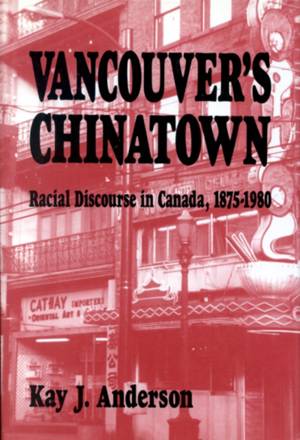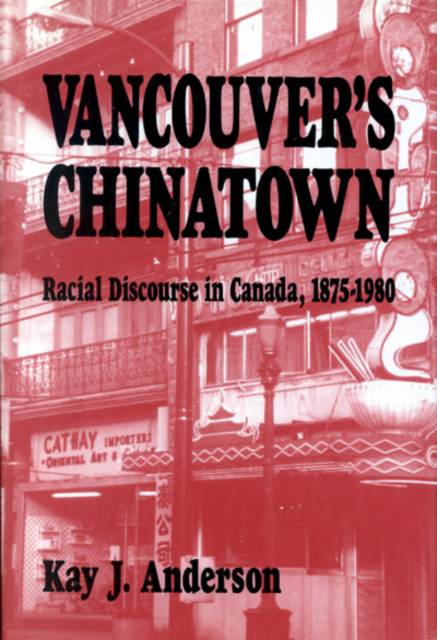
- Afhalen na 1 uur in een winkel met voorraad
- Gratis thuislevering in België vanaf € 30
- Ruim aanbod met 7 miljoen producten
- Afhalen na 1 uur in een winkel met voorraad
- Gratis thuislevering in België vanaf € 30
- Ruim aanbod met 7 miljoen producten
Zoeken
€ 48,45
+ 96 punten
Omschrijving
Anderson charts the construction of Chinatown in the minds and streets of the white community of Vancouver over a hundred year period. She shows that Chinatown -- from the negative stereotyping of the late nineteenth and early twentieth centuries to its current status as an ethnic neighbourhood -- has been stamped by changing European ideologies of race and the hegemonic policies those ideas have shaped. The very existence of the district is the result of a regime of cultural domination that continues to exist today. Anderson clearly rejects the concept of race as a means of distinguishing between groups of human beings. She points out that because the implicit acceptance of public beliefs about race affects the types of questions asked by researchers, the issue of the ontological status of race is as critical for commentators on society as it is for scientists studying human variation. Anderson applies this fresh approach toward the concept of race to a critical examination of popular, media, and academic treatments of the Chinatown in Vancouver.
Specificaties
Betrokkenen
- Auteur(s):
- Uitgeverij:
Inhoud
- Aantal bladzijden:
- 336
- Taal:
- Engels
- Reeks:
- Reeksnummer:
- nr. 110
Eigenschappen
- Productcode (EAN):
- 9780773513297
- Verschijningsdatum:
- 9/06/1995
- Uitvoering:
- Paperback
- Formaat:
- Trade paperback (VS)
- Afmetingen:
- 154 mm x 229 mm
- Gewicht:
- 494 g

Alleen bij Standaard Boekhandel
+ 96 punten op je klantenkaart van Standaard Boekhandel
Beoordelingen
We publiceren alleen reviews die voldoen aan de voorwaarden voor reviews. Bekijk onze voorwaarden voor reviews.











